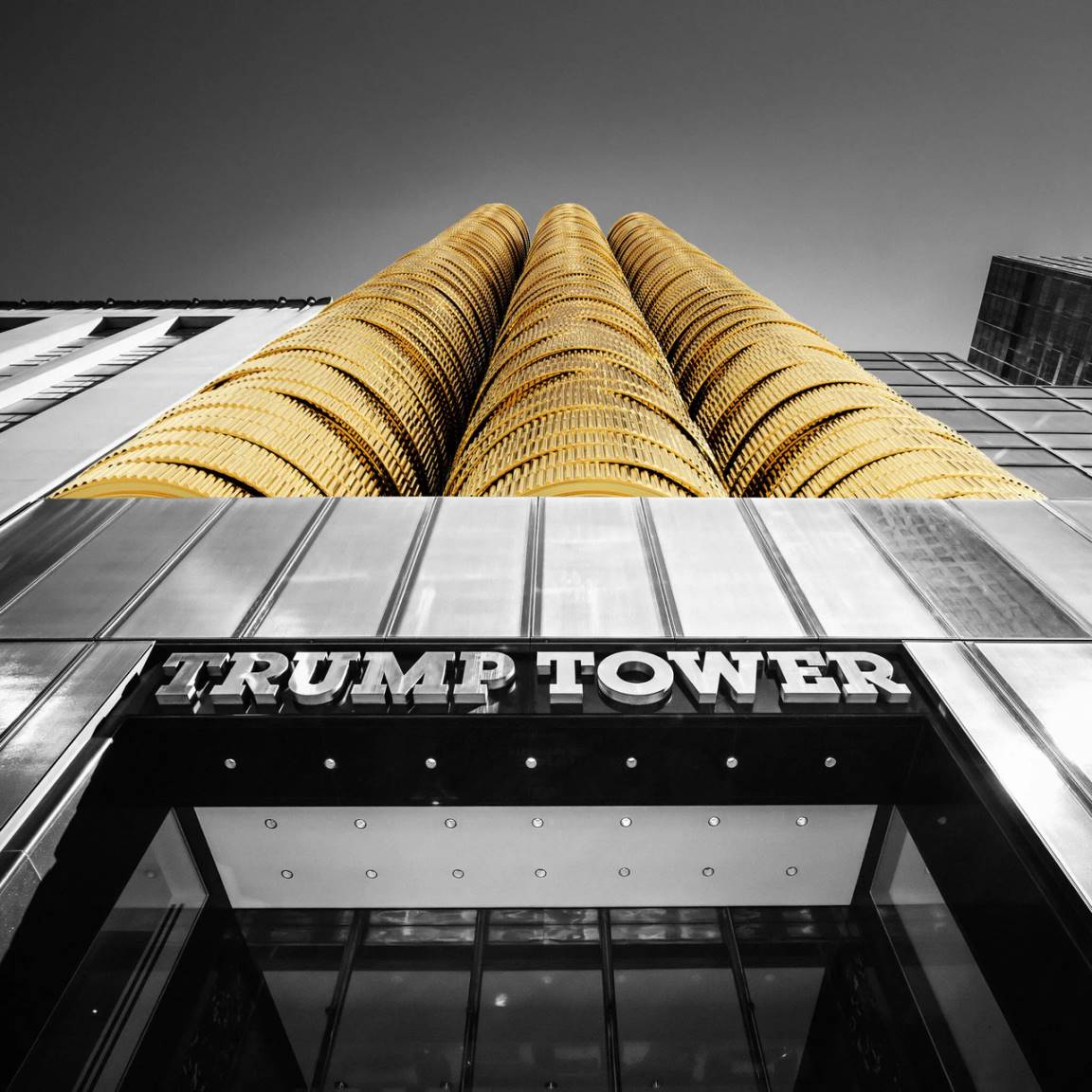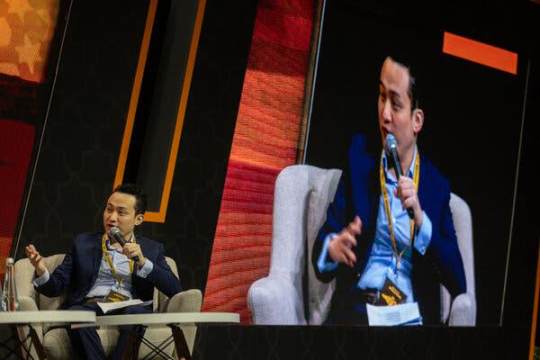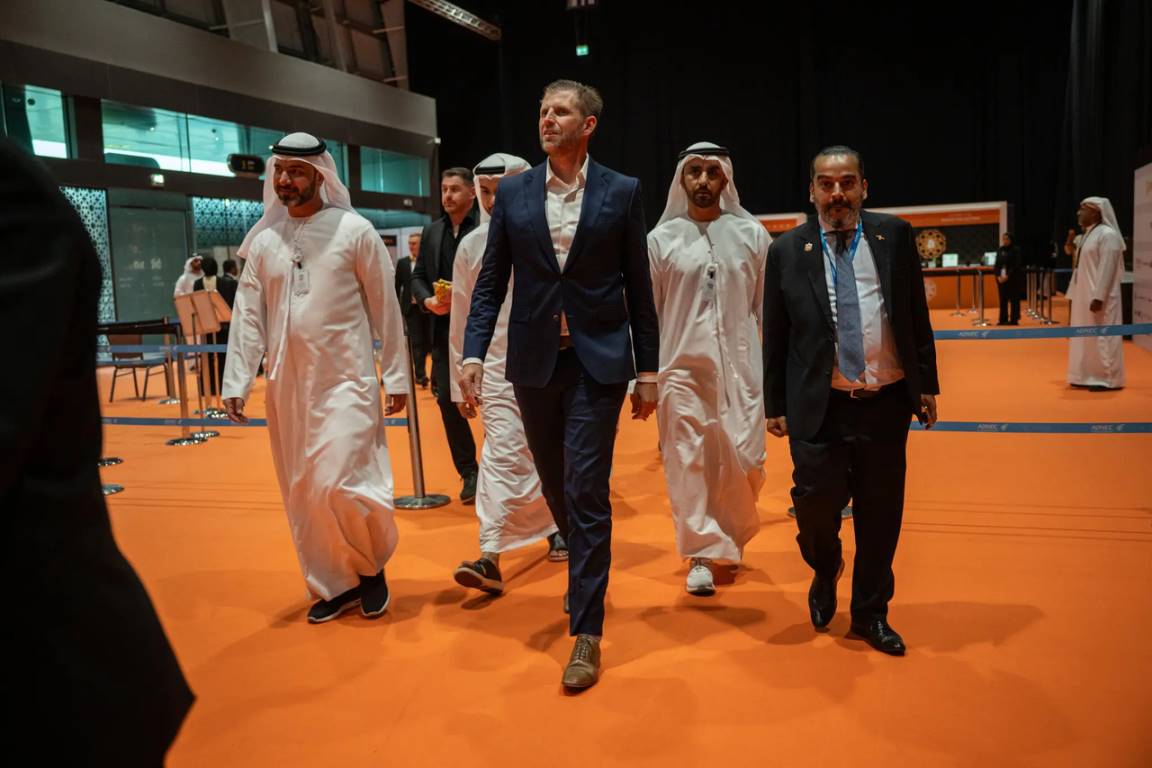The WLFI of the Trump Organization is breaking the boundaries between private enterprise and government policy in an unprecedented way in modern American history.
Written by: Eric Lipton, David Yaffe-Bellany, Ben Protess, The New York Times
Translated by: J1N, Techub News
Days before President Trump's inauguration, promotions for "ZMoney" appeared on the encrypted messaging app Signal.
"ZMoney" refers to Zachary Folkman, an entrepreneur who previously ran a dating software company called Date Hotter Girls and currently serves as a representative for WLFI. At that time, Zachary Folkman was writing to a cryptocurrency startup in the Cayman Islands, proposing a "partnership" where both parties would buy each other's digital currencies, a deal that would enhance the startup's public image.
However, The New York Times discovered a hidden clause. To gain the privilege of collaborating with the Trump family, the startup would actually have to secretly pay WLFI millions of dollars.
Zachary Folkman wrote, "Everything we do gets a lot of exposure and credibility," claiming that other business partners had pledged to donate between $10 million and $30 million to WLFI.
Executives at WLFI stated that the Cayman Islands startup rejected the proposal, and several other companies that received similar offers from WLFI also declined. They deemed the deal unethical, believing that WLFI was essentially selling the traffic generated by its political endorsement while concealing this from the public.
WLFI executives insisted that they had done nothing wrong and that their actions were not hindered as a result. They successfully marketed similar deals to other companies while also promoting WLFI tokens to buyers around the world, ultimately generating over $550 million in sales, a significant portion of which was distributed to the president's family.
Trump's return to the White House has opened new avenues for him to profit from his power, whether through his social media company or new overseas real estate deals. However, the conflicts of interest stemming from other business activities of the Trump family are far less pronounced than the series of related transactions brought about by the creation of WLFI.
WLFI is primarily owned by Trump family business entities, breaking centuries-old societal norms regarding presidents and eliminating the boundaries between private enterprise and government policy in a way unprecedented in modern American history.
Trump is now not only a significant cryptocurrency trader but also the highest policymaker in the industry. So far, during his second term, Trump has leveraged his presidential power to benefit the industry. Despite having mocked cryptocurrencies for years as a haven for drug dealers and fraudsters, he has continuously allowed his companies to profit from cryptocurrency revenues.
Members of Trump's government team include sympathizers of the cryptocurrency cause, including the appointment of a cryptocurrency industry advisor as the chair of the U.S. Securities and Exchange Commission (SEC). Additionally, the Justice Department recently disbanded a special task force on cryptocurrency crime, continuing to roll back the scrutiny of the industry that was present during the Biden administration.
The New York Times investigated WLFI's rapid rise from a startup to an international force, as well as Trump's transformation from a cryptocurrency skeptic to a staunch supporter of the industry, highlighting a series of conflicts of interest present within the company:
WLFI directly benefits from actions taken by the Trump administration, such as his announcement to establish a federal cryptocurrency reserve, which includes digital currencies invested in by WLFI. The president's statement temporarily increased the value of assets held by WLFI.
According to interviews and data obtained by The New York Times, WLFI has sold its cryptocurrency to overseas investors, including those in Israel and Hong Kong, opening a new avenue for foreign companies to curry favor with Trump.
Several investors in WLFI's cryptocurrency management company have been accused of misconduct by the federal government. This includes an executive whose fraud case was suspended after investing millions in WLFI. Other investors and business partners are seeking business expansion, which requires approval from the Trump administration.
WLFI proposed cryptocurrency transactions with at least five startups and frequently demanded high compensation in Trump's name. These transactions raised alarms among senior executives.
Andre Cronje, founder of Sonic Labs, stated, "This is a stain on our industry; anyone who accepts this project will obviously think they will make money because it is a project officially endorsed by Trump."
WLFI spokesperson David Wachsman denied that any of the company's transactions constituted "unilateral service payments." However, he acknowledged that the company did engage in "joint investment transactions," stating that these transactions facilitated "thoughtful strategic exchanges between both parties, mutually beneficial."
David Wachsman also stated that the belief that investment or collaboration with WLFI is some form of political exchange is "false, absurd, and dangerous." He said, "No investor or partner has ever requested any political favoritism, and we would never consider such a possibility."
Nevertheless, the deals made by WLFI still benefit the president and his family. According to WLFI's website, a business entity under Trump owns 60% of WLFI and is entitled to 75% of the revenue from token sales, which can be converted into cash.
Eric Frederick Trump, the president's son responsible for the family business, stated in an interview at Trump Doral Golf Club in Florida this month, "This is one of the most successful things we've ever done."
He and his brother Donald John Trump are actively involved in WLFI, although they rely on three partners to oversee the project's daily operations. Two of them, Zachary Folkman and Chase Herro, have mixed records in the cryptocurrency field. The third is Zach Witkoff, the son of Steve Witkoff, the U.S. special envoy to the Middle East, and one of the founders of WLFI.
In recent days, Zach Witkoff, Zachary Folkman, and Chase Herro met with Pakistan's Prime Minister Muhammad Shehbaz Sharif and other senior government officials to discuss the WLFI project. The trip was arranged with luxury cars, dance performances, and police escorts, perfectly blending the president's business interests with the formality of a state visit.
President Trump pointed out that conflict of interest laws do not apply to him and that he enjoys broad immunity for official actions taken as president.
A spokesperson for President Trump stated in a statement that his "assets are managed by a trust fund run by his children," thus "there is no conflict of interest."
Supporters of WLFI do not care about the conflict issues. Konstantin Kuznetsov, a Russian citizen living in Miami, stated in an interview, "Trump wants to make big money in the cryptocurrency field." His company, based in Gibraltar, purchased $1 million worth of World Liberty cryptocurrency. "We can ride this wave."

Chief Cryptocurrency Advocate
As a businessman known in the real estate sector, Trump has never aspired to build a digital currency empire. In fact, at the end of his first term, Trump expressed disdain for cryptocurrencies through social media. He warned that they "are not money." Their "value is extremely unstable and unfounded." By last year, his views began to shift.
On January 6, 2021, the Capitol was attacked, and the family business was ousted from the mainstream financial system; thereafter, his eldest sons became fervent supporters of cryptocurrency.
"We build, sell, and hold real estate permanently. For a long time, I could reach out to everyone in the world," Donald John Trump explained via video link at a cryptocurrency conference in Washington last month. "Suddenly, this became very difficult. I quickly realized how serious the discrimination was in ordinary financial markets."
Meanwhile, millions of dollars in campaign donations from the cryptocurrency industry flowed into Trump's re-election campaign. During the Biden administration, the cryptocurrency industry faced nearly 100 enforcement actions from the SEC, and executives in the cryptocurrency industry sought a leader in Washington who could protect their interests.
During the campaign, Trump's doubts about cryptocurrency seemed to vanish. At a Bitcoin conference in July, he vowed to make the U.S. the "global cryptocurrency capital."
Two months later, Trump completed his ideological shift, announcing that he and his sons would enter the cryptocurrency market by establishing World Liberty Financial.
Trump announced this news via live stream from his Mar-a-Lago estate in Florida, where he gathered with Eric Frederick Trump, Donald John Trump, Zachary Folkman, Chase Herro, and Zach Witkoff. "Cryptocurrency is one of the things we have to do," Trump said. "Whether we like it or not, I have to do it." Choosing Chase Herro and Zach Witkoff as partners for the president is indeed rare.
Zachary Folkman has short curly hair, tattoos, and ran a company in his twenties that provided guidance for down-and-out men on how to approach women. In multiple podcast episodes, Chase Herro has recounted his path to redemption, describing his wild youth when he was charged with possession of marijuana and spent a few weeks in a Wisconsin prison.
The two have collaborated for years, selling various products from colon cleansers to get-rich-quick advice, later turning to cryptocurrency, but with inconsistent results.
In 2022, Chase Herro encouraged cryptocurrency enthusiasts to invest in TerraUSD, calling it "one of the coolest assets in history." A month later, TerraUSD collapsed, wiping out billions in wealth. The cryptocurrency platform that Chase Herro recently collaborated on with Zachary Folkman, Dough Finance, was hacked in July, resulting in $2 million being stolen.
It remains unclear how these two earned the trust of the Trump family. However, Steve Witkoff stated last year that he met them through his son and then introduced them to the Trump family.
During the live stream introducing the World Liberty Organization, Donald John Trump praised these individuals as top financial talents.
He said, "You could put them in a Goldman Sachs conference room, and they would amaze everyone in the room."
In October, Chase Herro and Zachary Folkman began working on the company's first project, selling WLFI tokens, with a target sales goal of $300 million.
WLFI is different from the Memecoin TRUMP; at least according to its marketing, anyone who purchases WLFI tokens can vote on business decisions like shareholders in a traditional company. The ultimate plan is to operate in the form of a new internet bank, allowing customers to borrow using various digital currencies.
Trump is at the center of this promotion. The company released a 13-page "golden book" describing its mission and leadership team. The cover features a portrait of Trump, designed to look as if it has been splattered with gold paint.
The report states that he will serve as the company's "chief cryptocurrency advocate."
When the WLFI plan was launched, the Trump family and its affiliates received 22.5 billion WLFI tokens, which as of now have a paper value of at least $1.1 billion.
According to the company's regulations, the Trump family and other WLFI investors are prohibited from selling their coins on the open market, but the company stated that this restriction could eventually be lifted if other token holders agree.
Initially, there were very few buyers. By the end of October last year, WLFI had only sold $2.7 million worth of coins, far from its target.
Election Day Changed the Situation.
A Surge of Investors
As voting concluded in much of the United States and Trump was poised to win, WLFI's account on X posted a celebratory message on November 5: "Big things are coming."
Soon, a flood of investments poured into World Liberty's cryptocurrency.
Most cryptocurrency transactions are recorded on a public ledger called the blockchain, where buyers and sellers are essentially anonymous. However, World Liberty claims to have conducted thorough vetting of its cryptocurrency investors, thus knowing their identities.
An analysis conducted by the on-chain data analytics firm Nansen for The Times, based on cryptocurrency industry data, shows that many investors reside in overseas regions such as Singapore, South Korea, Hong Kong, and the United Arab Emirates.
Federal law prohibits foreigners from donating to presidential campaign or inauguration funds, but the sale of WLFI provides a new, legal way to support Trump.
Keer Lau, Chief Strategy Officer of Hong Kong's Orbiter Finance, stated, "The main reason for purchasing this token is to support Trump's inauguration, as he is the first president in the U.S. to be friendly to cryptocurrency."
Some companies managed by domestic and foreign investors have violated U.S. regulations. One of them is Israeli Yoni Assia, who founded the online trading platform eToro, whose U.S. subsidiary reached a $1.5 million settlement with the SEC last year over cryptocurrency-related violations. Puerto Rican investor Troy Murray also purchased World Liberty's cryptocurrency. Previously, he helped create BarnBridge, which agreed to pay the SEC $1.7 million by the end of 2023 to settle its own cryptocurrency-related charges.
Since Trump took office, some investors in World Liberty have been urging the government to obtain regulatory approval or prepare to interact with the government as they attempt to establish or expand their businesses in the U.S.
In March of this year, Assia's company notified the SEC of plans to list in the U.S. The UAE-based cryptocurrency company DWF Labs announced this month that it has invested $25 million to acquire WLFI and will open an office in New York.
DWF Labs Executive Partner Andrei Grachev stated in an interview, "This deal enhances our visibility in the U.S. We want to have direct conversations with policymakers."

At the end of last year, Sun Yuchen gained global attention by purchasing a banana taped to a wall for $620,000 at an art auction. Shortly thereafter, Masayoshi Son made another eye-catching move: he spent $75 million to buy WLFI tokens.
This investment drew widespread criticism from the community, as Sun Yuchen was clearly trying to curry favor with the Trump administration. During the Biden administration, the SEC sued Sun Yuchen, claiming he fraudulently inflated the price of Tron (TRX).
Sun Yuchen denied the SEC's allegations and stated in a text to The New York Times last year that his investment in WLFI was merely a vote of confidence in the Trump family's "excellent project."
At the end of February, the SEC requested a federal judge to suspend the proceedings against Sun Yuchen, stating that it was exploring "potential resolutions." The judge approved the request.
A Star-Studded Lineup
Sun Yuchen provided significant support to the World Liberty organization. But Trump's company wanted more money. More.
Thus, World Liberty executives quickly announced a plan they referred to as a "transformative initiative," which involved collaborating with other cryptocurrency institutions and investing in their cryptocurrencies. Executives stated in February that this strategy would leverage World Liberty's growing influence to assist lesser-known partners.
"It's like taking care of your brother in space," Chase Herro said at a cryptocurrency event in New York that month.
However, several executives from cryptocurrency startups told The New York Times that World Liberty's public statement overlooked a key aspect of its private pitches to several cryptocurrency startups. World Liberty wanted to sell its own cryptocurrency, not just invest in other cryptocurrencies. It proposed a currency swap.
According to executives from three cryptocurrency companies that the company approached, the deal proposed by World Liberty was as follows: these startups would spend $10 million to $30 million to purchase a large amount of World Liberty's cryptocurrency. In return, World Liberty would buy a small amount of each startup's own cryptocurrency. The remaining funds would belong to World Liberty—at a premium of up to 20%.
World Liberty's acquisition would send a signal to the market: Trump's company believes these startups are worth investing in. However, the market would not know whether World Liberty received compensation for this endorsement. Industry news outlet Blockworks had previously reported some details of World Liberty's similar promotions.
"They kept telling us we felt very close to Trump," said Mike Silagadze, CEO of the cryptocurrency startup Ether.Fi that was approached by World Liberty.
"We immediately rejected it," said Dominik Schiener, founder of the IOTA Foundation based in Berlin. The foundation also received the proposal and stated, "This is a very dishonest practice."

Dominik Schiener, founder of the IOTA Foundation
World Liberty spokesperson Wachsman stated in a statement that The New York Times' report "fundamentally misunderstands industry standard practices" and claimed that the company's business arrangements "are not only common in the blockchain industry but are also essential for establishing lasting economic alliances in the business sector."
He added, "These arrangements establish relationships of interest among the parties."
The Times found that the benefits of collaboration were enough to attract at least five cryptocurrency companies to engage in other deals with World Liberty without disclosing the financial arrangements' details.
In one deal, the U.S.-based Sui Foundation announced that World Liberty would purchase an unspecified amount of its cryptocurrency, leading to a price increase of over 10% for Sui. Two insiders revealed that as part of the agreement, the foundation would receive World Liberty's cryptocurrency in return. Due to the private negotiations involved, the two insiders requested anonymity.
Other collaborative projects of the World Liberty Foundation also demonstrate how Trump merges his public office with business activities. Last December, the company announced it would use technology designed by Lisbon-based startup Ethena Labs. The company also purchased over $5 million worth of Ethena cryptocurrency.
One of Ethena's investors is cryptocurrency entrepreneur Arthur Hayes, who admitted to violating the Bank Secrecy Act in 2022 and was sentenced to six months of home confinement. Last month, Trump pardoned Arthur Hayes. (A spokesperson representing Ethena and Hayes declined to comment.)
Another partner of World Liberty is Ondo Finance, a New York-based startup backed by conservative billionaire Peter Thiel's venture capital firm Founders Fund.
World Liberty first purchased Ondo's tokens in December, acquiring over 130,000 tokens. This transaction at least temporarily boosted Ondo's token price and became headline news on major cryptocurrency news websites, praising World Liberty's bet.
In January of this year, Ondo donated $1 million to Trump's inauguration, ensuring an invitation to the candlelight dinner held at the National Building Museum in Washington, which included several nominees for Trump's cabinet. Ondo also sponsored an inauguration event called the "Crypto Ball." Shortly thereafter, Donald John Trump and the management team of World Liberty became the headline figures at a meeting organized in New York.
"We weren't sure if this moment would happen before," Ondo Chief Strategy Officer Ian De Bode said on stage. "But sometimes, things just fall into place."
"Thank me later"
In February of this year, Eric Trump conveyed some investment advice to his fans on X: "In my opinion, now is a good time to buy Ethereum."
This refers to the stock code of the digital currency called "Ethereum." "You can thank me later," he added, before deleting the statement.
It turned out that his advice was very prescient.
The following month, Trump announced the establishment of the "U.S. Cryptocurrency Reserve Center," a cryptocurrency repository similar to Fort Knox, aimed at supporting the industry.
Trump's statement listed the digital currencies to be included in the reserve. In addition to Bitcoin, he also included Ethereum, stating that it would "become the core of the reserve."
The price of Ethereum surged over 13%.
The direct beneficiary of this surge was World Liberty. According to the crypto data company Arkham, the company purchased $240 million worth of Ethereum over the past few months.
On the day the president announced the cryptocurrency reserve, assuming World Liberty did not sell any of its held Ethereum, its value increased by $33 million. However, as the value of Ethereum declined, this portion of the profit also evaporated.
The same pattern reappeared in March. Trump made policy statements or released information intersecting with World Liberty's business interests.
In a video from a cryptocurrency conference held in New York, Trump called on Congress to pass legislation regulating stablecoins, a type of cryptocurrency designed to maintain a value of $1.
Both the Senate and the House introduced bills aimed at making it easier for companies issuing stablecoins to operate in the U.S. In a speech last month, Trump stated that the rise of stablecoins would "expand the dominance of the dollar."
A week later, World Liberty announced the launch of its own stablecoin, USD1. "The future is here, and it's bright!" Zach Witkoff wrote on X.
Jordi Alexander, a cryptocurrency executive who helped World Liberty formulate the plan to launch the stablecoin, stated in an interview that the company had secured at least $1 billion in commitments from investors, who would purchase once the stablecoin was launched.
This new company would only exacerbate World Liberty's ethical conflicts. The company plans to offer the stablecoin on a platform developed by Binance. This week, Zachary Folkman, Chase Herro, and Zach Witkoff met with Binance founder and former CEO Changpeng Zhao in Abu Dhabi.

Eric Trump
According to insiders, Zhao Changpeng served four months in federal prison for money laundering and has been seeking a pardon from the Trump administration. Due to the sensitive nature of the topic, the insiders requested anonymity.
The overlap of Trump's policy statements with his business interests shocked congressional Democrats, who recently took action to amend pending stablecoin legislation to prohibit the Trump family from enacting stablecoin legislation.
The amendment failed to pass, but any concerns regarding World Liberty did not undermine its momentum.
免责声明:本文章仅代表作者个人观点,不代表本平台的立场和观点。本文章仅供信息分享,不构成对任何人的任何投资建议。用户与作者之间的任何争议,与本平台无关。如网页中刊载的文章或图片涉及侵权,请提供相关的权利证明和身份证明发送邮件到support@aicoin.com,本平台相关工作人员将会进行核查。




